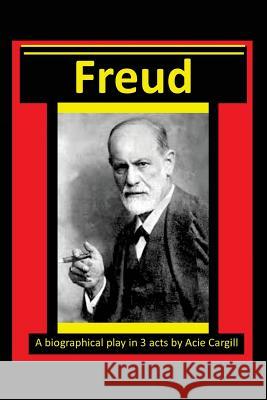Freud - A Biographical Play in 3 Acts » książka
Freud - A Biographical Play in 3 Acts
ISBN-13: 9781540406422 / Angielski / Miękka / 2016 / 66 str.
This play examines the early days of psychoanalysis. Some of these pioneers include Freud, Jung, Breuer, Charcot, Stekel, and Adler. Our knowledge of the workings of the mind and its malfunctions is still very incomplete, but because of the working of these scientists there are some possible non-surgical, non-drug therapies for mental illness. They experimented with the unconscious, trying to understand it and hopefully correct problems with it that are resulting in difficulties for the patient. Most of us just experience the unconscious in our dreams. Regular memories seem to be able to be recalled at will and are therefore part of regular consciousness. This 8000 word play primarily presents the theories of Freud. They are not completely from his own contemplations. There was a lot going on in the field of psychology or neurology. The knowledge was shared and compared. The mind used to be a subject for philosophers and metaphysicians, actually going back thousands of years. You take the old speculations and try to combine them with the new scientific methods and you have psychology. Freud was part of that chain. One thing to remember about psychology is that nothing is known for sure. So many theories. There is some cross-over among the scientists, but a lot of variations. No way to prove or disprove their ideas. Does it work in actual application on patients? That is the only way to judge its efficacy. Does it work consistently? Do other people get the same results with totally different methods? Freud's ideas are effective some of the time and sometimes not. When dealing with the human mind, there are no sure things. Freud popularized psychoanalysis. That is his claim to fame. This play will attempt to simplify his theories and methods and give a little insight into the man himself.
Zawartość książki może nie spełniać oczekiwań – reklamacje nie obejmują treści, która mogła nie być redakcyjnie ani merytorycznie opracowana.











